第27章
That legitimate governments are instituted under the natural law is frankly conceded, but this is by no means the concession of government as a natural development.The reason and will of which the natural law is the expression are the reason and will of God.The natural law is the divine law as much as the revealed law itself, and equally obligatory.It is not a natural force developing itself in nature, like the law of generation, for instance, and therefore proceeding from God as first cause, but it proceeds from God as final cause, and is, therefore, theological, and strictly a moral law, founding moral rights and duties.Of course, all morality and all legitimate government rest on this law, or, if you will, originate in it.But not therefore in nature, but in the Author of nature.The authority is not the authority of nature, but of Him who holds nature in the hollow of His hand.
V.In the seventeenth century a class of political writers who very well understood that no creature, no man, no number of men, not even, nature herself, can be inherently sovereign, defended the opinion that governments are founded, constituted, and clothed with their authority by the direct and express appointment of God himself.They denied that rulers hold their power from the nation; that, however oppressive may be their rule, that they are justiciable by any human tribunal, or that power, except by the direct judgment of God, is amissible.Their doctrine is known in history as the doctrine of "the divine right of kings, and passive obedience." All power, says St.Paul, is from God, and the powers that be are ordained of God, and to resist them is to resist the ordination of God.They must be obeyed for conscience' sake.
It would, perhaps, be rash to say that this doctrine had never been broached before the seventeenth century, but it received in that century, and chiefly in England, its fullest and most systematic developments.It was patronized by the Anglican divines, asserted by James I.of England, and lost the Stuarts the crown of three kingdoms.It crossed the Channel, into France, where it found a few hesitating and stammering defenders among Catholics, under Louis XIV., but it has never been very generally held, though it has had able and zealous supporters.
In England it was opposed by all the Presbyterians, Puritans, Independents, and Republicans, and was forgotten or abandoned by the Anglican divines themselves in the Revolution of , that expelled James II.and crowned William and Mary.It was ably refuted by the Jesuit Suarez in his reply to a Remonstrance for the Divine Right of Kings by the James I.; and a Spanish monk who had asserted it in Madrid, under Philip II., was compelled by the Inquisition to retract it publicly in the place where he had asserted it.All republicans reject it, and the Church has never sanctioned it.The Sovereign Pontiffs have claimed and exercised the right to deprive princes of their principality, and to absolve their subjects from the oath of fidelity.Whether the Popes rightly claimed and exercised that power is not now the question; but their having claimed and exercised it proves that the Church does not admit the inamissibility of power and passive obedience; for the action of the Pope was judicial, not legislative.The Pope has never claimed the right to depose a prince till by his own act he has, under the moral law or the constitution of his state, forfeited his power, nor to absolve subjects from their allegiance till their oath, according to its true intent and meaning, has ceased to bind.If the Church has always asserted with the Apostle there is no power but from God--non est potestas nisi a Deo--she has always through her doctors maintained that it is a trust to be exercised for the public good, and is forfeited when persistently exercised in a contrary sense.St.Augustine, St.Thomas, and Suarez all maintain that unjust laws are violences rather than laws, and do not oblige, except in charity or prudence, and that the republic may change its magistrates, and even its constitution, if it sees proper to do so.
That God, as universal Creator, is Sovereign Lord and proprietor of all created things or existences, visible or invisible, is certain; for the maker has the absolute right to the thing made;it is his, and he may do with it as he will.As he is sole creator, he alone hath dominion; and as he is absolute creator, he has absolute dominion over all the things which he has made.
The guaranty against oppression is his own essential nature, is in the plenitude of his own being, which is the plenitude of wisdom and goodness.He cannot contradict himself, be other than he is, or act otherwise than according to his own essential nature.As he is, in his own eternal and immutable essence, supreme reason and supreme good, his dominion must always in its exercise be supremely good and supremely reasonable, therefore supremely just and equitable.From him certainly is all power;he is unquestionably King of kings, and Lord of lords.By him kings reign and magistrates decree just things.He may, at his will, set up or pull down kings, rear or overwhelm empires, foster the infant colony, and make desolate the populous city.